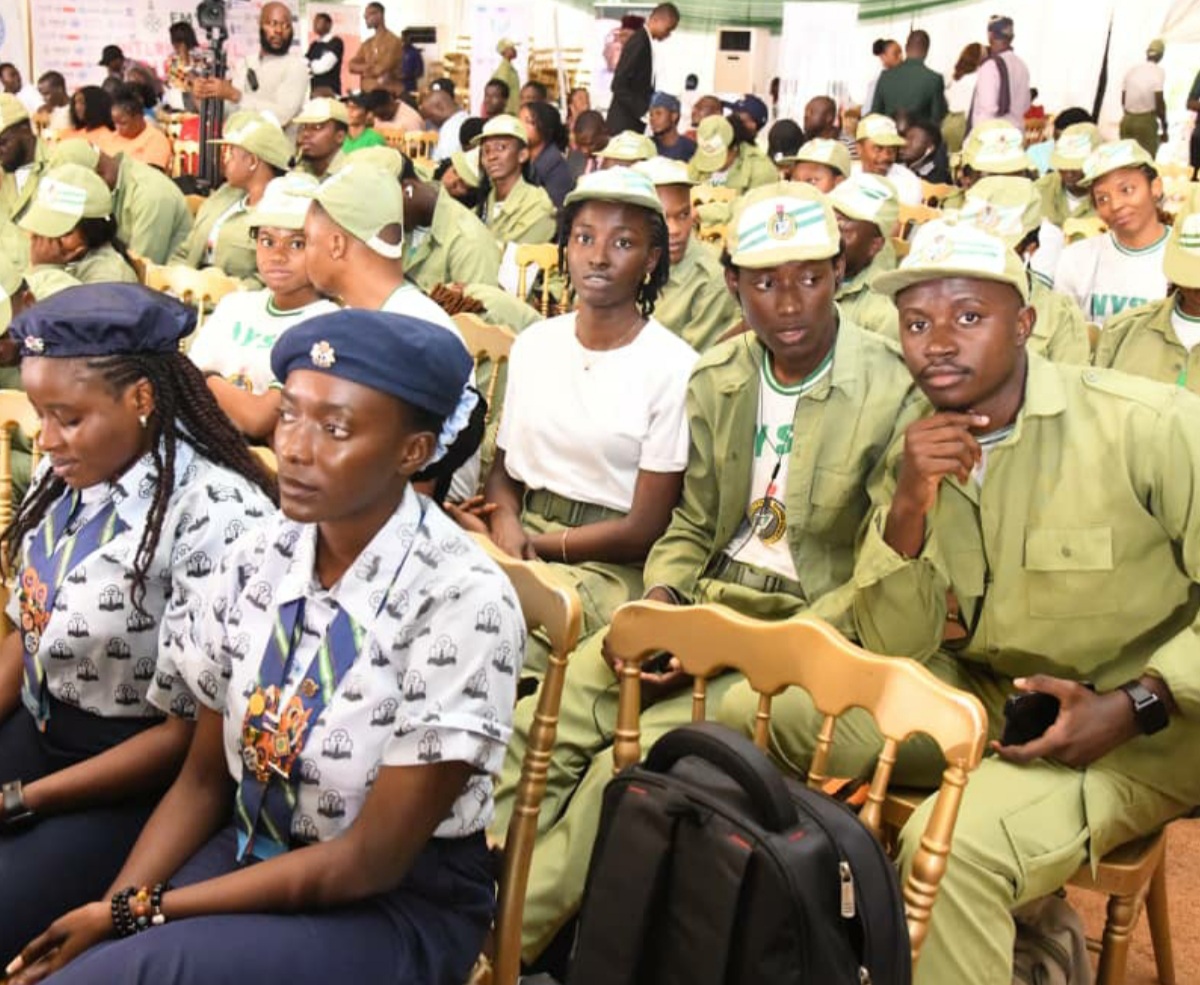By France Ofili
The Federal Government has called on Nigerians to reflect on how young people can drive the achievement of the Sustainable Development Goals (SDGs) by 2030.
Minister of Youth Development, Mr Ayodele Oolawande, made the call during the International Youth Day 2025 Youth Innovation Funfair, in Abuja on Tuesday.
The News Agency of Nigeria (NAN) reports that the event is themed “Youth, SDGs and Beyond, Igniting Innovation for a Sustainable Future.”
Oolawande emphasised that young people were at the heart of achieving the SDGs, a global agenda to end poverty, protect the planet, and promote prosperity for all.
“We cannot reach these goals without the energy, creativity, and leadership of young people.
“In Nigeria, more than 60 per cent of our population is under the age of 25.
“That is not just a statistic, it is our greatest strength,” he said.
He noted that Nigerian youth were already leading transformative change across sectors such as agriculture, health, education, renewable energy, and digital technology.
However, he acknowledged that many young innovators faced challenges, particularly around funding and market access.
The innovation funfair, he said, was designed to bridge those gaps.
“It connects young innovators with partners who can help them grow and succeed.
“Today’s activities, from innovation booths to pitch sessions, networking, masterclasses, and cultural showcases, are more than fun.
“They demonstrate that Nigerian youth are ready to turn ideas into impact,” Oolawande stated.
He added that going “beyond the SDGs” meant equipping youth not just for 2030, but for the future beyond it, with skills, creativity, and vision to handle long-term challenges.
The ministry, he said, was committed to improving youth policies, increasing access to funding, and expanding global opportunities.
Oolawande called on the private sector, donor community, and civil society to make long-term investments in youth-led innovation.
“I plead with you to support the ideas you see today with funding, mentorship, and market access,” he urged.
In his remarks, the Permanent Secretary of the ministry, Mr Olubunmi Olusanya, said the day was about spotlighting the extraordinary impact of young people.
“They are driving change at the grassroots, transforming communities, and contributing meaningfully to national and global development,” he said.
Olusanya highlighted that more than 65 per cent of SDG targets were linked to local governance, making youth engagement not a luxury, but a necessity.
“Sustainable development doesn’t begin in boardrooms. It begins with bold ideas, local innovation, and everyday actions by young people who dare to make a difference.”
He mentioned several initiatives by the Ministry to empower youth, including the Nigeria Youth Academy, Youth Help Desk, Youth Parliament, and reforms to the National Youth Service Corps (NYSC).
Also speaking at the event, Ms. Elsie Attafuah, UNDP Resident Representative in Nigeria, said the theme was especially relevant given Nigeria’s demographics.
“With more than 60 per cent of Africa’s population under 25, Nigeria is at the heart of a historic demographic moment.
“Our youth are not just a future workforce, they are problem-solvers, innovators, and nation-builders now,” she said.
Attafuah highlighted the role of youth in areas such as agritech, digital innovation, peacebuilding through art, and climate action.
She stressed the importance of providing youth with the right tools and platforms to lead change.
She noted UNDP’s ongoing investments in youth development in Nigeria:
“The Nigeria Jubilee Fellows Programme has provided over 10,500 graduates with work experience and entrepreneurial skills.
“Young Africa Innovates has supported more than 1,000 youth innovators.
“Ten UNIPODS (innovation hubs) will be launched across Nigeria by the end of 2025, focusing on regional strengths like agritech in Benue and green tech in Akwa Ibom.
“Libraries and vocational centres are being transformed into Community Entrepreneurship and Innovation Hubs in states such as Abuja, Anambra, Ekiti, Kwara, Katsina, Niger, and Plateau.”
Attafuah also cited the HerAfCFTA initiative, through which more than 3,000 Nigerian women entrepreneurs had received support to access markets, improve product quality, and mobilise finance.
“When young people are equipped and trusted, they don’t just participate in change, they lead it,” she said.
NEWS AGENCY OF NIGERIA
